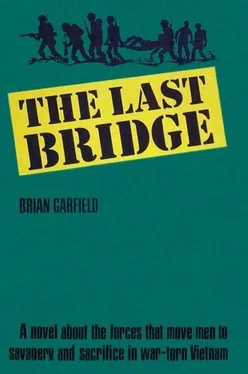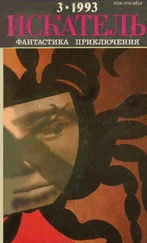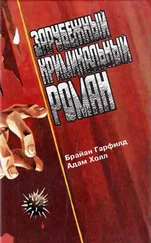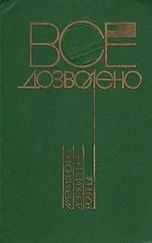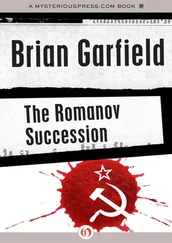The truck inched forward on the deserted hillside. The city seemed unconscious. Lights burned, staring winklessly through the rain, fixing the panorama of the city’s shape: a kidney outline, bounded by mountains on all sides. The truck growled, now and then complaining with a squeak or a soft metal clank. The seat jostled him gently.
The flat of land appeared, spreading out to the left of the path. It tipped downward toward the backs of a ragged row of stone buildings. One light brightened a high window; starkly revealed in silhouette, a woman’s high-breasted shape crossed the shade, and the light went out. It was a single glimpse of life going on in the ordinary way, and it was altogether unreal. Khang said, “You do know why we are here?”
It was downhill; he shut off the engine. His foot rode the brake pedal, and his spine pressed into the seat back. Nhu Van Sun said, “We are here to fight our enemies, Sergeant.”
“Enemies,” Khang said. “I was born here.”
The truck coasted down the incline and prowled between two buildings built of stone, neither of them standing quite up-and-down. Sergeant Sun said, “If a man is loyal to his country, then he must be loyal to his government.”
“What?”
“Besides,” Nhu Van Sun said, “we are soldiers. A soldier must be loyal, if he is nothing else. How can you ask why you are here?”
Khang only shrugged. He had trouble making out the shifts of the street. “Cobblestones,” he said, lapsing into English. “We’ll wake the dead.” The narrow street ran between stone houses clinging precariously to sloping ground at either side. Here and there the open front of a shop; a chicken running in wing-lifted panic to evade the truck’s advance; an old man, probably opium-numbed, sprawled over stone steps; deep-set windows like hollow eye sockets; a shaggy cat prowling back and forth at a doorway; the red glow of a cigarette glowing and dimming in a dark window; an ancient temple built of huge stones, each stone fitted perfectly into the others without mortar — “I remember this place,” Khang said. “They use it now for indoctrination meetings.”
The stone structures leaned at lazy angles. Nhu Van Sun said, “ Choi oi. ”
“What is it?”
“I saw something move — stop the truck.”
“We can’t. They’d know what we were up to if I stopped.”
“Stop the truck,” Sun repeated. And so Khang stopped it.
Chapter Twenty-five
1055 Hours
J. D. Hooker dropped off the truck clutching his blunt-snouted gun. He stood at the tailgate until Tyreen’s face appeared. “Sergeant Sun spotted something. Have a look.”
“You trust that bastard, Colonel?”
Saville jumped down past Tyreen. “We’ll do this without noise, understand?” Saville’s face was calm and round, but here and there a tight line crossed it. “Leave that thing here.” He put his hand on the muzzle of Hooker’s submachine gun. Hooker’s grip tightened. Saville’s brute strength depressed the barrel, and Hooker let go; Saville passed it to Tyreen and then walked forward beside the truck.
Sergeant Sun said, “I see two men by corner there.”
The whole conversation took place in muted whispers. Saville’s arm lifted and made motions. J. D. Hooker thereupon put his back to the truck and moved away, keeping the truck interposed between himself and the corner where Sun said he had seen men. Hooker walked steadily to the shelter of a sagging stone house and went around it briskly. The North Vietnamese field jacket, taken off a dead man an hour ago, flapped as he ran. He broke into a dogtrot, and his lips lashed back from his teeth; he jerked the pistol from his holster and reversed it in his fist like a short club. His feet rose and fell against the uneven ground. He curled around the second corner of the house, picked a path through creepers and brush, found the far end of the building, and turned slowly past the corner. Probing the mists with eyes and ears and nose, he found nothing. He moved with alert care toward the street. Rain compressed around him. He arrived at the street, having come all the way around the house, and saw nothing except the mass of Captain Saville’s figure by the corner.
Hooker stood a moment regaining his breath. “He never saw nothing. The puking little gook lied in his teeth.”
Saville spoke very quietly. “Put that thing away.” Hooker slipped the automatic into its scabbard. They walked back to the truck, Saville shaking his head and making horizontal motions with his hands. Hooker climbed up. “Wild-goose chase. He never saw nothing.”
“Maybe,” said Tyreen.
Hooker moved forward under the tarp with willful anger clouding his face. He heard Saville settle down and felt the truck begin to move.
Tyreen wore a hat taken from the dead PANVN captain — like an Australian bush hat, it had a wide, soft brim, which he turned down to conceal part of his face. He crouched by the front corner of the tarp, ready to flip it back. The truck coasted downhill; now and then a vehicle went past, and Tyreen found himself sweating with more fear than fever. They swayed around a sharp corner, and Saville murmured, “Not many blocks from here to the compound.”
“Thank God for this fog. What time is it?”
“Time for the lights to go out,” Saville said. “Time and then some. It’s almost five after eleven. I wonder what happened to those Yards.”
“Never trust a Goddamn gook,” J. D. Hooker said. It was a tired refrain; no one responded.
Saville said, “Kind of strange to think Eddie Kreizler’s just a few hundred yards from here.”
And Tyreen said, “I’m trying not to think about what he looks like by now.”
They went around a building and down a street, crawling past a buffalo-drawn cart. Pedestrians were scattered along the street; Tyreen could see them past the open back of the truck. He kept his hat pulled down and his head tucked in. It was dark under the tarp, and no one looked at them closely. Tyreen was thinking, it was a damned good thing the Chutrang population was not expecting trouble close to home. The war was a long distance away from these mountains.
Someone on the street called out. Tyreen heard Sergeant Khang shout a reply, but he could not make out the words. An inch of water sloshed around in the bed of the truck; his feet were soaked, had been soaked ever since his parachute drop into the Gulf five hours ago. His hands were softened and wrinkled by the hours of wetness; everything they touched was soaking wet.
He was looking out at the street when he saw the lamps go out. It started a hubbub of talk along the street. People gathered in clusters, gesturing. Their faces were afraid. He saw dripping hatbrims bob up and down. J. D. Hooker said, “I hear something popping. Maybe grenades up the hill. Where’s that power station?”
“I guess they did it,” Saville said.
They drove several blocks; the street widened and leveled off. Glancing upward under the tarp, Tyreen observed the clouds moving eastward; there seemed to be a faint break in the weather coming from the west. He scanned the street ahead through a fold in the tarp; a motorcycle roared toward them and went by, leaving a spray of water in the air. It whined up the street splashing pedestrians. The driver carried an automatic rifle over his shoulder. “Headed for the power station,” Saville said. “There’ll be a lot more of those in a few minutes. When the hell do we get off this boulevard?”
Corporal Smith crouched silently under the tarp’s deepest shadows; he had kept unbroken peace ever since they had left the Montagnard camp. His left hand, forgotten, held tightly the machine gun, to keep it still. He sat in water and seemed unaware of it.
Читать дальше
